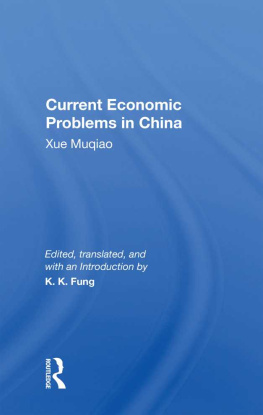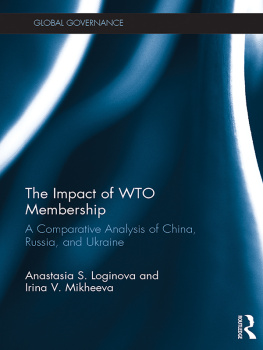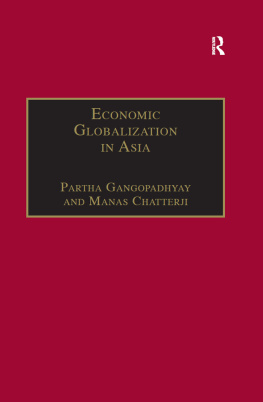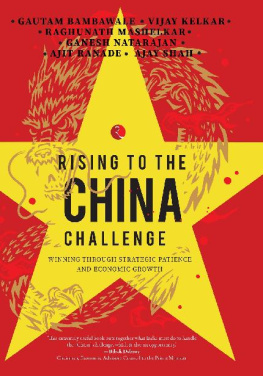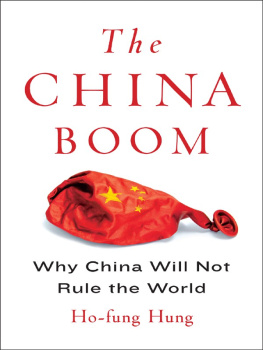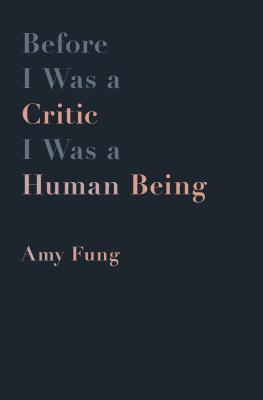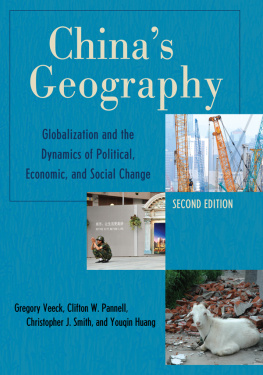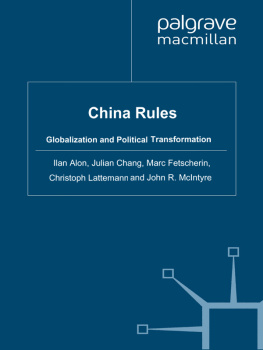
The Chinese economy, because of its vast size, growth in foreign trade and FDI inflows, has become an influential force in the global economy. Chinas entry into the World Trade Organization (WTO) represented a huge stride in the countrys economic development.
This is a timely study of Chinas rapidly changing economy after entering WTO. It provides an in-depth analysis of the path China is taking in the globalization process and an understanding of the risks and opportunities that market participants will encounter in the process. Chapter authors include leading scholars in international economics and the study of Chinese economic issues. This comprehensive study covers most key topics on Chinas globalization process from the perspectives of economics, political science, sociology, and regional sciences. It looks at recent financial reforms and economic, industrial, and agricultural performance. It also provides theoretical frameworks for analyzing opportunities and challenges faced by China after WTO accession and derives practical policy guidance for dealing with this transition to economic integration.
First published 2006 by M.E. Sharpe
Published 2015 by Routledge
2 Park Square, Milton Park, Abingdon, Oxon OX14 4RN
711 Third Avenue, New York, NY 10017, USA
Routledge is an imprint of the Taylor & Francis Group, an informa business
Copyright 2006 Taylor & Francis. All rights reserved.
No part of this book may be reprinted or reproduced or utilised in any form or by any electronic, mechanical, or other means, now known or hereafter invented, including photocopying and recording, or in any information storage or retrieval system, without permission in writing from the publishers.
Notices
No responsibility is assumed by the publisher for any injury and/or damage to persons or property as a matter of products liability, negligence or otherwise, or from any use of operation of any methods, products, instructions or ideas contained in the material herein.
Practitioners and researchers must always rely on their own experience and knowledge in evaluating and using any information, methods, compounds, or experiments described herein. In using such information or methods they should be mindful of their own safety and the safety of others, including parties for whom they have a professional responsibility.
Product or corporate names may be trademarks or registered trademarks, and are used only for identification and explanation without intent to infringe.
Library of Congress Cataloging-in-Publication Data
China and the challenge of economic globalization : the impact of WTO membership /
edited by Hung-Gay Fung, Changhong Pei, and Kevin H. Zhang.
p. cm.
An East Gate Book.
Includes bibliographical references and index.
ISBN 0-7656-1468-5 (alk. paper)
1. World Trade OrganizationChina. 2. ChinaCommerce. 3. ChinaEconomic
conditions2000-1. Fung, Hung-gay. II. Pei, Changhong. III. Zhang, Kevin H.
HF3836.5.C4583 2005
330.951dc22
2004022521
ISBN 13: 9780765614681 (hbk)
Contents
Hung-Gay Fung, Changhong Pei, and Kevin H. Zhang
Changhong Pei and Jinjian Shen
Kevin H. Zhang
Penelope B. Prime
Ying-Qiu Liu
Xiaodong Wu
Yan-Zhong Wang
Nini Yang
Bing-Wen Zheng
Jian Zhang
Ju-Wei Zhang
Hung-Gay Fung and Qingfeng Wilson Liu
Hung-Gay Fung, Wai Kin Leung, and Stanley J. Zhu
Changwen Zhao and Kun Li
Mei Liao
Ting Gao
Francis Tuan, Agapi Somwaru, and Xinshen Diao
Xiao-shan Zhang
Wai-Chung Lo
Hung-Gay Fung, Changhong Pei, and Kevin H. Zhang
China emerged as the largest recipient of foreign direct investment (FDI) and the fifth largest trading nation in the world in 2002. Chinas entry into the World Trade Organization (WTO) represents a huge stride forward in its reform efforts. These reforms include liberalization and modernization of Chinas economy (in industrial, services, and agricultural sectors) and trading activities.
Chinas growing economy, its international trade, and its large inward FDI have significantly affected the growth of global trade, the distribution of global direct investments, and the pace of expansion of global output. There is no other country in history, as a WTO member, to have achieved such expansion in a comparable time period. China is expected to be influential in future rounds of WTO trade negotiations. As the only major trading nation that is not classified as an advanced industrial economy, China is bringing an unparalleled perspective to the negotiations and exerting its power on matters important to its trade. China, as a new WTO member, is posing momentous opportunities and challenges to the United States and other countries.
A study of the Chinese economy after entering the WTO should be of importance to practitioners, scholars, and policymakers because of Chinas vast size, its rapid growth in foreign trade and FDI inflows, and the unprecedented speed of its integration into the world economy. The high quality of the chapters within this volume and their authors expertise unite to make this book a most timely contribution to our understanding of Chinas rapidly changing economy and its transformation toward globalization after entering the WTO.
This volume is divided into four parts. The first part deals with economic performance after Chinas accession to the World Trade Organization. The second part relates to the WTO and Chinas economic welfare. The third part deals with Chinas financial reforms and capital markets, and the last part discusses Chinas industrial and agricultural development. In total, we have eighteen chapters that will shed light on the Chinese economy and the challenges posed by WTO membership.
The first chapter, An Analysis of Chinas Foreign Trade after WTO Accession, by Changhong Pei and Jinjian Shen, shows that the year 2002 was a year of harvest in the development of foreign trade for China. Becoming a WTO member in 2001, China quickened its pace in both reforms and opening markets. The total foreign trade value of China reached US$620.8 billion at a growth rate of 21.8 percent, while the export value reached US$325.6 billion at a growth rate of 22.3 percent. The import value reached US$295.2 billion with a cumulative US$30.4 billion of trade surplus. There are seven main reasons for the rapid growth of Chinese trade: (1) the demand of domestic economic growth; (2) the strengthening of the export refund policy; (3) improvement of the structure of export commodities; (4) the depreciation of the U.S. dollar; (5) membership in the WTO; (6) policy encouraging foreign trade exports; and finally, (7) export growth by foreign invested enterprises in China.
In the second chapter, Foreign Direct Investment: Opportunity or Challenge for China After WTO Membership? Kevin H. Zhang presents his view of how China deals with the challenges of using foreign direct investment (FDI) after entering the WTO. Chinas entry into the WTO is bringing both opportunities and challenges in the use of foreign direct investment. With WTO commitments to further liberalization of the FDI regime and to allow more penetration by multinational corporations (MNCs) in Chinas markets, the dangers and negative effects of FDI seem to be increasing. While mutual benefits of FDI exist, the conflicts between China and the MNCs tend to be intensifying over time. China hopes to exchange its domestic market with MNCs for advantaged technology and to promote exports through offering MNCs cheap labor and other resources. MNCs want to control Chinas huge market and use China as a manufacturing base at the lower end of the value chain. The outcome depends in large part on how China balances technology transfers and domestic market protection. China should take full advantage of its large market to shape MNC activities. A strong and competent central government needs to remain in order to bargain with Western MNCs. FDI from overseas Chinese should be continuously encouraged with various incentives.




